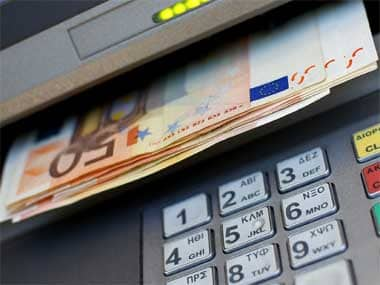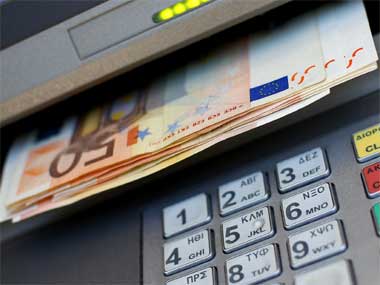Talk about contrarian investing! At a time when global asset markets are running scared from a Eurozone crisis that resembles a train wreck that’s happening in slow-motion, China’s leaders say they have been buying - and will continue to buy more - euro sovereign debt.
Premier Wen Jiabao, currently on a tour of Europe , has been holding out assurances that China, with its $3 trillion in reserves, has been a “heavy investor” in euro sovereign debt. “We’ve bought a lot of euro bonds over the past years, and we will continue to support Europe and the euro.”
[caption id=“attachment_32325” align=“alignleft” width=“380” caption=“The euro will not fall apart. Vladimir Rys/Getty Images”]
 [/caption]
[/caption]
Independent analysts have for long been prophesying a messy unravelling of the euro. French economist Charles Gave says the euro won’t exist a year from now . Hedge fund investor George Soros sees the exit of weaker economies from the euro as inevitable. Economic commentator John Mauldin says rather more grimly that a coup in Greece could cause it to exit the euro .
Yet, swimming against the alarmist tide of analytical opinion, Laurence Liu, the head of China’s sovereign wealth fund, says : “There is nothing to be worried about. The euro will not fall apart.”
The prospect of a cash-rich China coming riding up, like a knight in shining armour to rescue down-and-out European economies has a certain romantic appeal to it. And since events in the Eurozone could drag down the global economy, China could be said to be “saving the world”.
Except that it leaves open the question: who will save China?
On the same day that China was coming to the rescue of indebted Eurozone economies, back home the National Audit Office released a report claiming that Chinese local governments had run up 10.72 trillion yuan ($1.65 trillion) in debt.
Impact Shorts
More ShortsAlthough that figure is lower than an earlier estimate by China’s central bank, the People’s Bank of China, that the debt burden of local governments was as high as 14.4 trillion yuan, independent analysts point out that it understates the size of China’s own debt burden.
Invoking a forensic accounting methodology cited by Victor Shih , one of the foremost authorities on China’s public debt situation, this analyst concludes that the real number is closer to 20 trillion yuan (nearly $3 trillion). And that there are signs that local government financing vehicles are facing a severe financial crisis and are at risk of defaulting on their debt.
That estimate of China’s public debt situation comes close to other independent estimates, which Firstpost reported on. (See reports here and here .)
Today, warnings of a hard landing of the Chinese economy are legion: and even Premier Wen has conceded that China was falling behind in its fight against inflation , which points to more tightening ahead. For an economy that is attempting a structural change in its economy - and facing the prospect of a sharp slowdown in the global economy - that’s far-from-cheery news.
All of which goes to show that while China’s words of assurance about saving the European economy may be balm for a bruised economy, it may not have much of a healing effect.
China may need to save itself before it can save the world.
Venky Vembu attained his first Fifteen Minutes of Fame in 1984, on the threshold of his career, when paparazzi pictures of him with Maneka Gandhi were splashed in the world media under the mischievous tag ‘International Affairs’. But that’s a story he’s saving up for his memoirs… Over 25 years, Venky worked in The Indian Express, Frontline newsmagazine, Outlook Money and DNA, before joining FirstPost ahead of its launch. Additionally, he has been published, at various times, in, among other publications, The Times of India, Hindustan Times, Outlook, and Outlook Traveller.
)